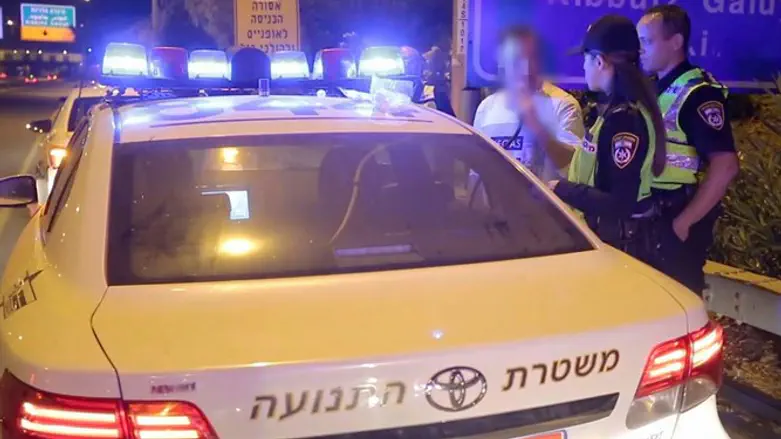
Road Safety Week begins next week, ahead of which Israel Police have released alarming statistics on drunk driving.
Police data show that between January and September, 2021, a total of 3,275 citations were issued for drivers found driving under the influence of alcohol, significantly more than the 2,630 citations issued in the parallel period the previous year – in fact, an increase of around 25 percent.
Of those citations, 38 were issued to repeat offenders, whereas during the previous year the figure was just 19. A large percentage of the citations were issued to drivers between the ages of 16 and 23 (1,021 citations), and 10 of the drivers in this age group were found to be repeat offenders.
In recent years, the use by police of a new type of breathalyzer test has served as an effective deterrent to would-be reckless drivers and especially partygoers, with the aim of decreasing the number of accidents caused by drivers who are under the influence of alcohol. Any driver found with more than the permitted level of alcohol in his blood is summoned to a court hearing, his license is suspended for 30 days, and his vehicle is impounded for that period as well.
The breathalyzer test flags drivers as over the legal limit if they are found with more than 240 micrograms of alcohol per liter of exhaled air. Enhanced traffic police activity over the past year has revealed drivers with up to 1,000 micrograms of alcohol per liter, and in some cases up to 1,500 mcg. There have even been cases where truck drivers were found with amounts approaching these levels in their analyzed breath.
Deputy Traffic Police Commissioner Guy Levy stressed that drunk driving is considered one of the most serious offenses, which is why enforcement of the law is so critical in this case. He noted that many drivers are unclear regarding how much they can drink before driving, and his solution to this dilemma is simple: if you’re planning to drive, don’t drink.
“Drivers must not rely on their own sense of how they’re feeling and assume it’s okay to drink a half-glass of beer, for instance,” he told Israel Hayom.
“A driver who has had a drink can feel alert, but in practice there’s no comparison between him and someone who hasn’t drunk at all. And he’s also vulnerable to the careless driving of others on the road,” he added.